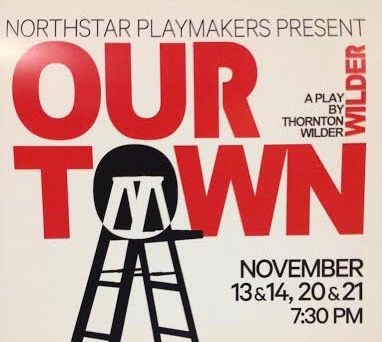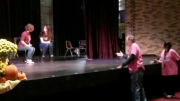Our Town is a three act play set in 1938 and written by American playwright Thornton Wilder. It was recently performed by Westhill students.
Set in the small town of Grover’s Corner, New Hampshire Our Town offers a slice of life, peering into the lives of many of the town folk, eventually averting its gaze to main characters Emily and George at the end of the first act. The second act begins three years later, when George and Emily are betrothed and their wedding ceremony is set to soon commence. Both are reluctant to be wed, but carry on anyway concluding the second act.
The third act, taking place nine years later, continues with a lengthy monologue from the narrator, who then shifts the attention to a rather grim scene at the graveyard. Several less-important characters have met their untimely demise and the audience eventually learns that Emily too is among the aforementioned dead, having met her end during childbirth. Her spirit desperately clings to any remnant of her former life and, after observing the beauty of life, she finally lets go and the play is concluded.
The acting was well executed across the board and done without the assistance of many props. The costumes accurately represented the common garb of the 1900s, and the transitions carried out by the tech were done with breathtaking speed and awe-inspiring accuracy.
Overall I found the experience to be an enjoyable one; the philosophical inquires put forth about morality and beauty of life were thought-provoking to say the least and resonated deeply with me. However, one single aspect heightened my enjoyment of the play immensely: I quickly became an ardent fan of watching the actors toil with their hands in various ways pretending as though they had props. It was truly a mystifying experience almost worth the price of admission alone.


